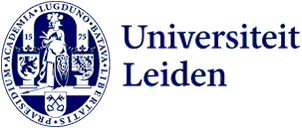
'This course is a simulation of your professional work as an astronomer'
What if I completely changed everything? A subject without lectures or exams, where the right answer is not important and where students work with their hands. With this idea, Michiel Brentjens reformed the course Radioastronomy. His students are so enthusiastic about this approach that they nominated him for Teacher of the Year 2022.
'This really needs some changes,' Brentjens said two years ago. When all classes had to go online because of corona, he became increasingly aware of how teaching is too often one-way communication. 'Students need to be actively engaged to learn something. And there should be a challenging component to it. That's when I got the idea to let students make their own radio telescope.'
Brentjens went looking for an affordable way to make that happen. He ended up with paint cans of five litres. 'Those have almost exactly the right dimensions to detect radio radiation from neutral hydrogen gas in the universe. Building a radio telescope out of cans with students; I don't think any other team on the whole planet has ever done that. And there is probably a good reason for it,' Brentjens laughs. 'But that shouldn't stop you as a scientist.'
Making mistakes and trying again
Students were amazed when they saw the materials laying on the table. 'We were actually going to build it and not just think it out in theory. That is not usual at a university. But I want this course to be a kind of simulation of the professional work you do as an astronomer. Making mistakes, learning from those mistakes and trying again until you discover something.'
It is great to be outside together, even if you occasionally have to chase the geese away from your instrumentation.
For the students, this took some getting used to. 'In the first lecture, a student came to me who was very insecure. He was used to set assignments where the answer is right or wrong. He was afraid of making a lot of mistakes in these classes. So I made it clear to him that that making mistakes is actually important because you learn a lot by looking at them critically. During the lectures, he grew tremendously. He had clearly gained the self-confidence to actively participate in discussions and was even laughing at things that went wrong.'
Blockages in your head
That is what makes Brentjens incredibly happy as a teacher: seeing his students grow. 'It gives me a kind of inner, childlike pleasure to help unravel the blockages in someone's brain. When you see that someone is struggling, it is very satisfying to find out together how something works. I love puzzling together!'
And puzzling is also what the students do with all parts of the telescope. With the icing on the cake: seeing if they can actually detect anything in the universe. 'We went everything outside with all the instruments to take measurements in Park Landskroon in Oegstgeest. It is great to be outside together, even if you occasionally have to chase the geese away from your instrumentation,' Brentjens laughs.

An image or modern art?
In the first year, the results of their measurements were still limited. This year they were much better. 'We managed to make the telescope technically good enough to obtain data suitable for making an image. Although that looked more like modern art than a picture of the sky,' Brentjens says while laughing out loud. 'But those are details to continue working on next year.'
At the end of the course, Brentjens took his students to Drenthe to see the LOFAR and Westerbork telescopes in real life. 'This way they get an idea of the scale. Above all, I hope they understand that conceptually there is no difference between those big telescopes and the thing they put together in the city park. It consists of the same components. Even if one has a few tonnes more steel in it.'
Text: Inge van Dijck
Picture of Michiel: Josien Feitsma / RTV Drenthe
